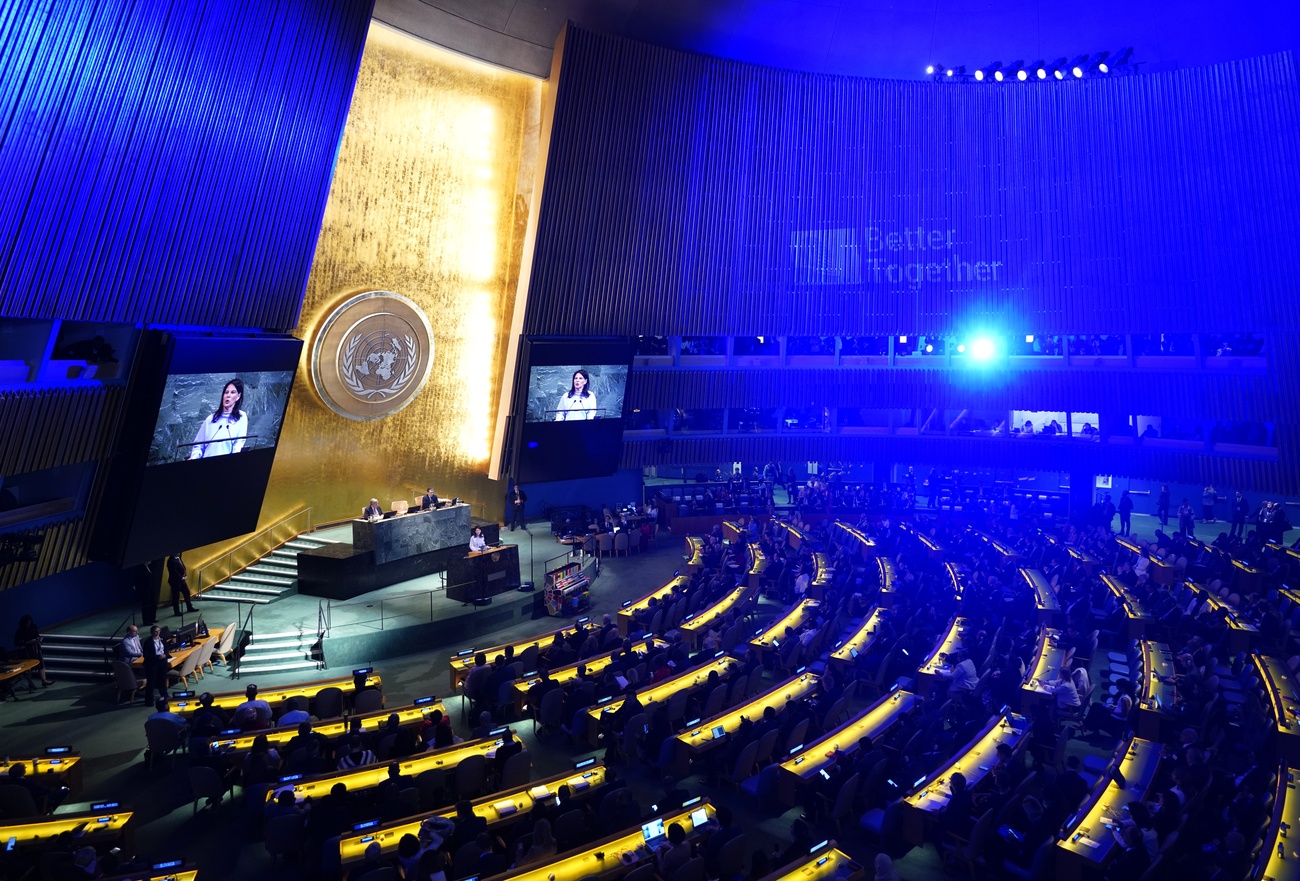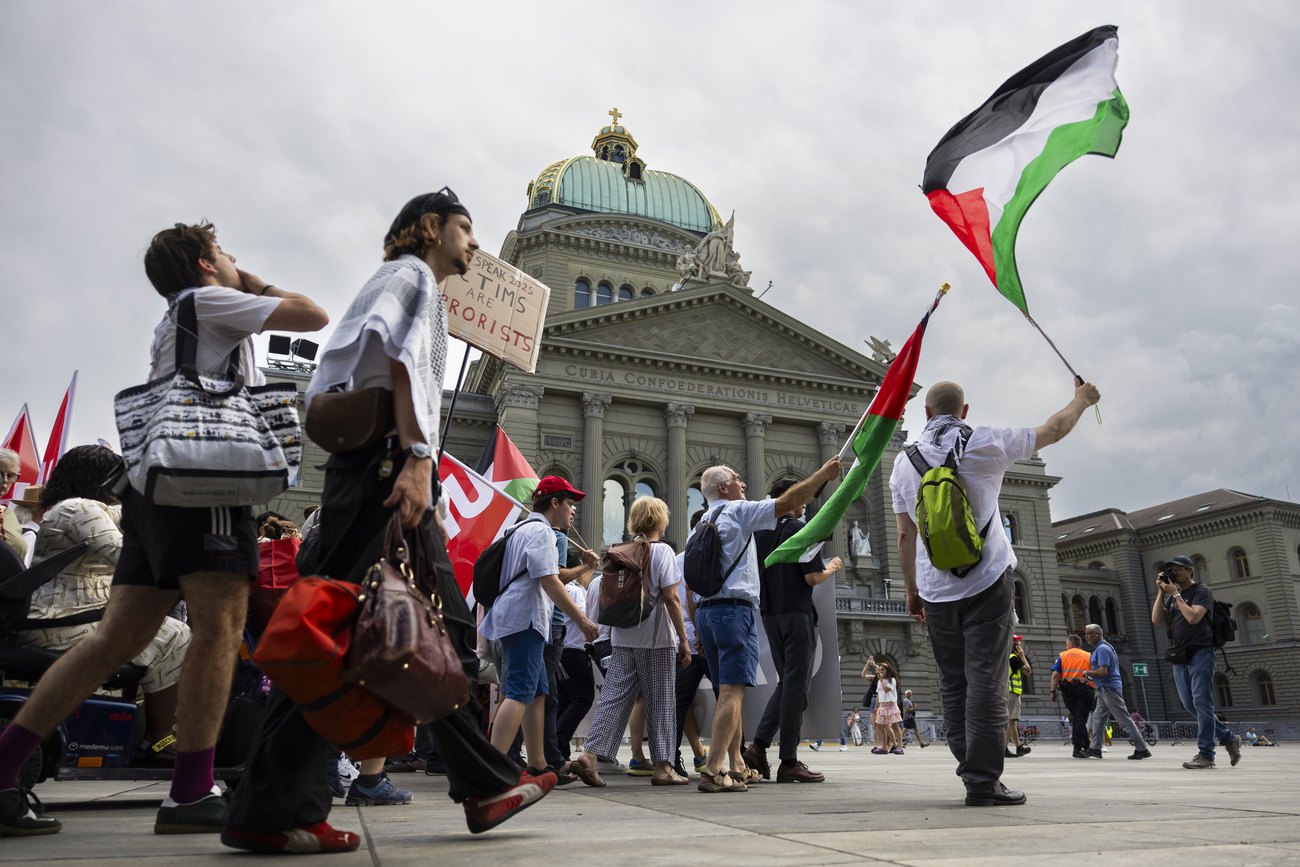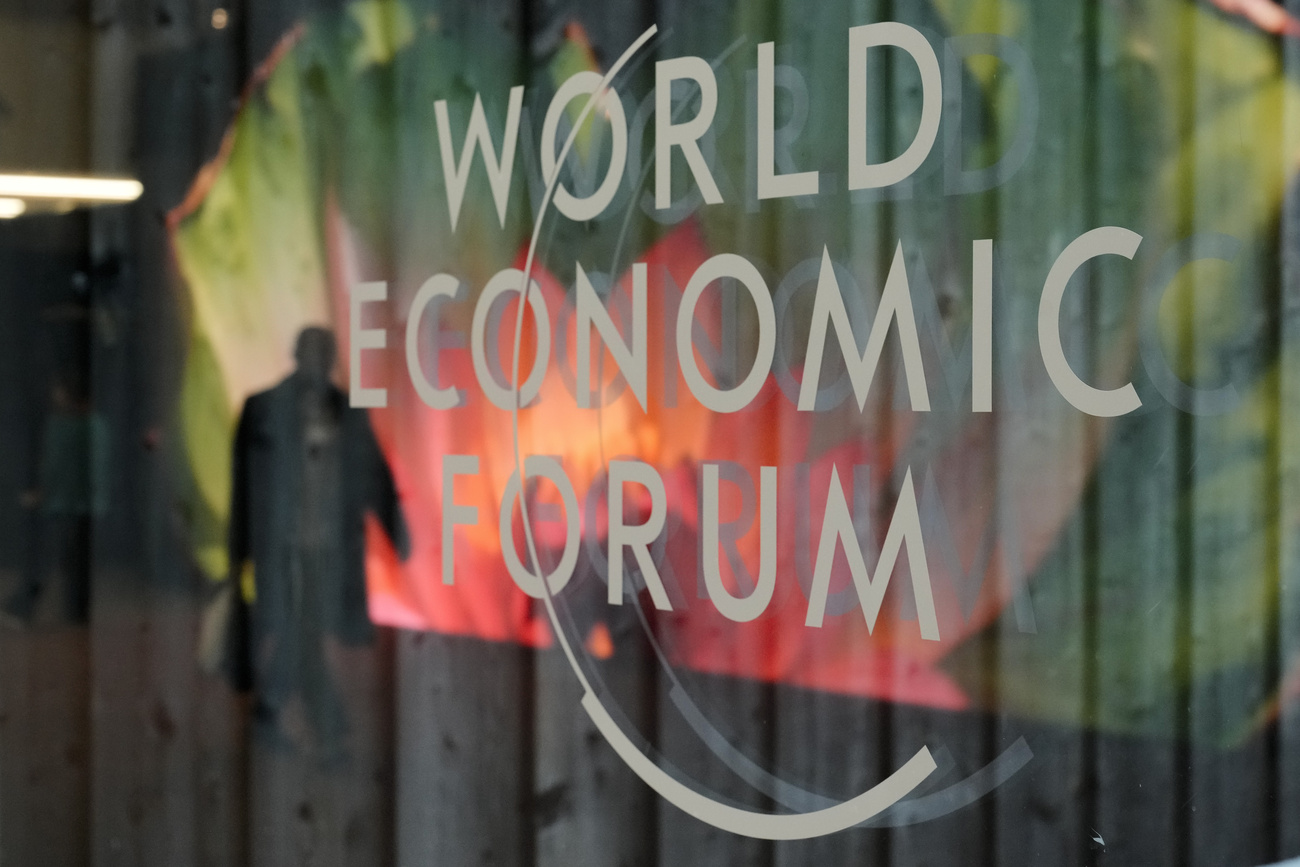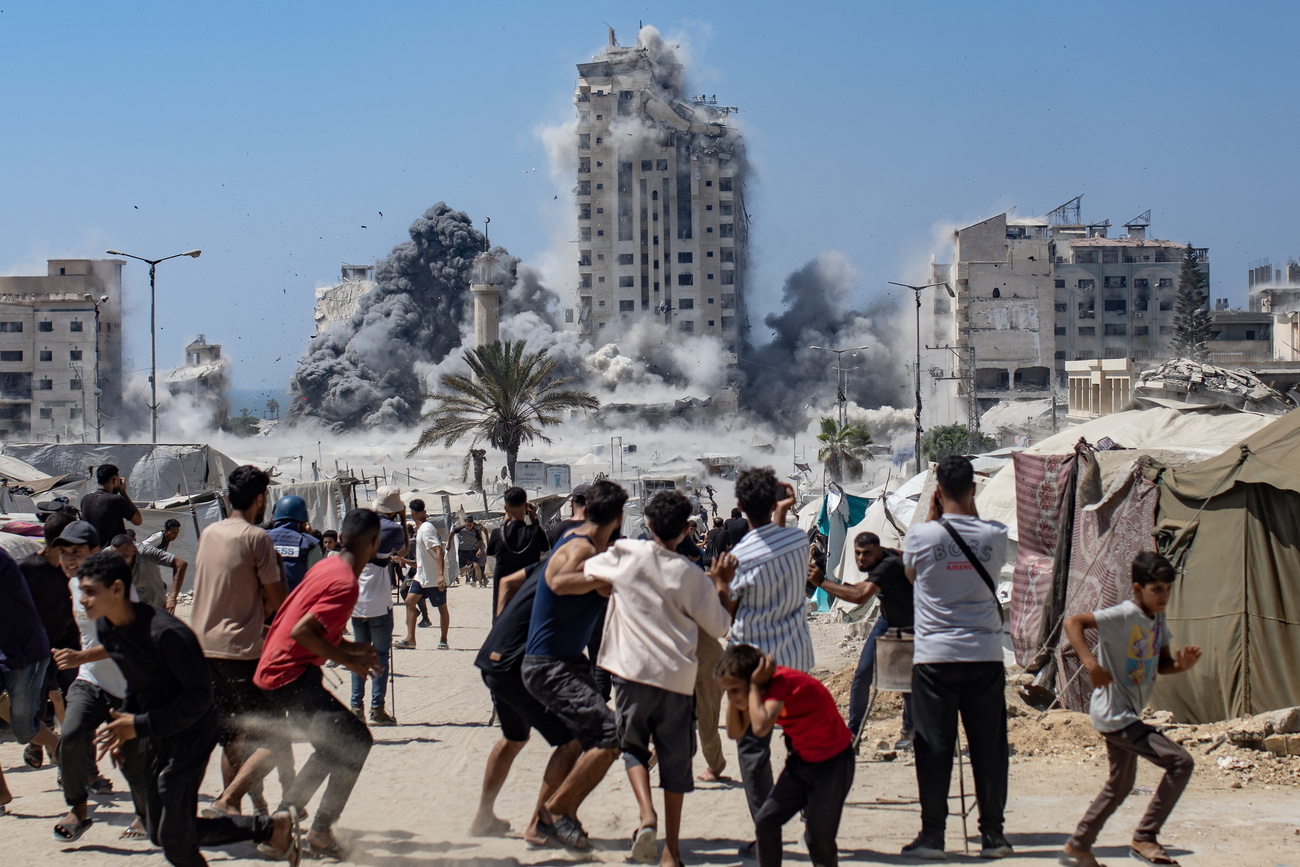
Growing up in Gaza

Four-year-old Amina plays in the dusty cement corridor outside her family’s cramped two-room dwelling in the overpopulated Gaza refugee camp of Jabalia.
She is one of more than four million Palestinian refugees who will be the subject of a Swiss-backed United Nations conference in Geneva next week.
Ahead of the meeting, which starts on Monday, swissinfo’s Anna Nelson takes an in-depth look at the worsening humanitarian situation in the Gaza Strip.
Amina lives with her parents, grandmother and eight siblings in one of the most densely populated places on the planet.
Home to some 107,000 refugees and measuring just four square kilometres, Jabalia is made up of a maze of overcrowded concrete shelters, referred to by many locals as an “open-air prison”.
By comparison, if Switzerland were as densely populated as Jabalia, it would have a population of 850 million people, instead of just 7.3 million.
“The living conditions here don’t meet the needs of a human being… this place isn’t even fit for chickens to live,” said Kamal Abu Qamar, a spokesman for the United Nations Relief Works Agency (UNRWA) in Gaza.
Dismal
Although their standard of living is below average, Abu Qamar says Amina’s family is typical of a growing number of hardship cases in camps throughout the Middle East, where international funding for refugees is drying up.
In most of Gaza’s eight refugee camps, including Jabalia, sewage and wastewater flow in open channels, while many of the roads are unpaved.
Local aid officials say that in some areas, the pathways between shelters are so narrow that the dead have to be carried out upright because the twisting corridors are too tight to accommodate coffins.
Meanwhile, the number of Palestinians living below the poverty line in Gaza has shot up from 20 per cent just four years ago to 80 per cent today.
Amina’s family has access to just one hour of running water per day and the closet-like kitchen is so dark that her mother prefers to cook outside using a large, blackened tin can heated with coals and wood.
A broken-down refrigerator serves as a musty storage spot for the monthly UN rations of rice, sugar, lentils, flour and cooking oil that allow the family to survive.
Struggling
Faced with an annual population growth rate of around four per cent in Gaza, as well as the challenges posed by the ongoing violence in the region, UNRWA says it is struggling to meet the needs of families like Amina’s.
“We simply don’t have the resources to provide all of the hardship cases with the kind of shelter and basic services they need,” Abu Qamar told swissinfo. “As it is, we can only meet about 35 per cent of their daily nutritional requirements.”
And the worst is yet to come, according to UNRWA’s public information officer in Gaza, Paul McCann.
“Unless we can come up with more financial resources, it’s likely that we’ll have to stop food distribution in October,” he said.
“So we’re hoping that the Geneva conference will focus more public attention on the Palestinian population and encourage donor countries to come up with a strategy to improve their lives.”
swissinfo, Anna Nelson in Jabalia
The United Nations Relief Works Agency (UNRWA) was created in 1949 to carry out relief programmes for Palestinian refugees throughout the Middle East.
Today, it is the main provider of educational, health, relief and social services to over 4.1 million registered refugees in Gaza, the West Bank, Syria, Lebanon and Jordan.
Switzerland channels the bulk of its development aid for the region through UNRWA and last year provided over SFr10 million to the agency in general funding.
Over the past decade, UNRWA’s spending per refugee has been cut by more than half due to the population’s high birth rate and a decline in voluntary donations from the international community.
There are 4.1 million registered refugees living in Jordan (39%), Gaza (23%), the West Bank (16%), Syria (11%) and Lebanon (11%).
Switzerland is gearing up to host the world’s largest-ever conference on the plight of Palestinian refugees in the Middle East.
The two-day meeting, which starts on Monday, was jointly organised by the United Nations Relief Works Agency (UNRWA) and the Swiss Agency for Development and Cooperation (SDC).
The aim of the gathering is to raise public awareness of the worsening humanitarian situation in refugee camps throughout the Middle East.
The organisers also hope to come up with a strategy to bolster funding for the booming Palestinian population, which is increasingly plagued by poverty and hardship.

In compliance with the JTI standards
More: SWI swissinfo.ch certified by the Journalism Trust Initiative



























You can find an overview of ongoing debates with our journalists here . Please join us!
If you want to start a conversation about a topic raised in this article or want to report factual errors, email us at english@swissinfo.ch.